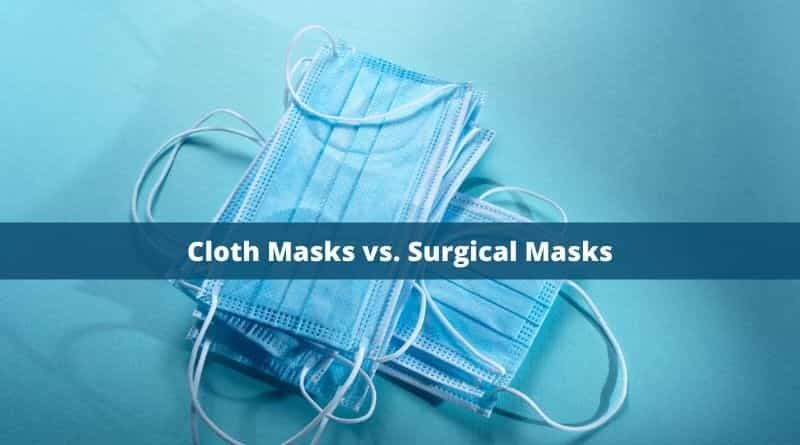Cloth Masks vs. Surgical Masks: Which Are Effective?
When the pandemic began, the Centres for Disease Control and Prevention (CDC) recommended using face masks to control the spread of the virus. With both cloth masks and disposable surgical masks are allowed for use, it is time to determine which kind is the most effective in preventing the spread of disease.
Table of Contents
Cloth Masks vs. Surgical Masks
Cloth Masks
In the early pandemic stage, authorities have asked the public to use cloth masks instead of medical-grade surgical masks due to supply shortages at the time. Surgical face mask supplies would be unavailable to the healthcare workers, who face the virus every day.
Due to this, the CDC has set up requirements to follow when buying or creating your cloth mask at home. They should have a correct fit over the nose and mouth and are made up of layers of breathable, tightly woven fabric. The fabric must be able to block light when held up against a light source. It must also have a nose wire to fit over the nose properly.
Cloth masks must not have vents, openings, or any kind of exhalation valves. These valves do not block viruses from coming out of the mask, allowing the spread of germs. Non-effective cloth masks also have gaps on the sides of the face and are made with only a single layer of fabric that does not block light.
The general public under 60 years of age and has no underlying health conditions can use cloth masks.
While cloth masks may not have the same filtering action as surgical masks, they are still considered a form of protection against COVID-19. It can be rewashed for multiple uses and fits the person’s facial profile, unlike the disposable surgical masks.
Surgical Masks
Surgical face masks are considered one of the first protective barriers against the virus. It protects both the wearer and the public. Healthcare providers wear them to keep from spreading the germs from the wearer’s nose and mouth to the patient.
These masks are created with non-woven materials, giving their ability for air permeability and bacteria filtration. These disposable masks have at least two filer layers to filter out bacteria more than 1 micron in size. Face masks and medical PPE manufacturers like The Kare Lab sterilize the finished masks before selling them on the market.
This type of protective equipment is not limited to health workers only. They are advised to be worn by any person feeling particularly unwell, waiting for COVID-19 results, or taking care of someone suspected or a confirmed case of the virus. Senior citizens with ages 60 and above and those with underlying health conditions of any age are also advised to use surgical masks.
Read: How to Deal with The COVID Testing Scare?
General Tips for Wearing Surgical Masks
For surgical face masks to effectively minimize the spread of diseases, one must always keep their face mask on whenever they speak, cough, or sneeze. COVID-19 spreads through droplet transmission; therefore, we must reduce the chance of expelling these droplets to other people.
When the surgical mask is loose and does not conform to the sides of the face, the wearer must conform the metal tie at the top of the mask to their nose. They can also loop and knot the ear loops to make them tighter. The wearer can also wear two masks, one surgical and one cloth, with the latter on top.
The user can also use masks that attach behind the user’s neck with elastic ties or bands for a better fit. This alternative is also a good solution when the back of the ears is sore from wearing face masks all day. The wearer must wash their hands before they put their masks on and after taking them off. The user must wash their hands after they touch their face mask.
One must also remember never to reuse surgical masks. They should be properly segregated and disposed of in the proper waste container. When the mask is visibly soiled, the user must dispose of it and use a new surgical mask to keep sterility.
Conclusion
Wearing a face mask is just one step of many to prevent the spread of diseases. Both cloth and disposable surgical masks are effective in keeping droplet transmission contained. When worn correctly, a face mask can be an essential key to stopping COVID-19.
Recommended Articles:
Places You Are Susceptible To Catch COVID-19




